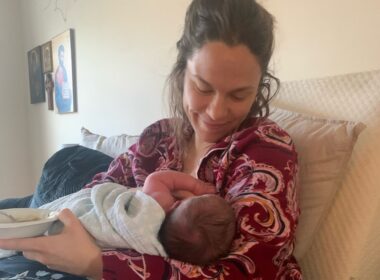Are you feeling tired? You’re not alone. Roughly 25% of women have trouble sleeping at any given time. As our female bodies go through seemingly endless hormonal changes, it can be hard to fall asleep and stay asleep. But researchers have found there may be an unexpected factor contributing to the modern epidemic of exhaustion: the birth control pill.
To understand how hormonal contraception can affect a woman’s sleep, it’s important to first know how human sleep is structured. Shut-eye actually happens in phases. In stage 1, which only lasts a few minutes, we experience brain waves called alpha and theta waves. This is very light sleep where we can still be easily awoken. In stage 2, there is medium level sleep, where we typically spend half the night. It helps to restore our bodies, but not as much as deep sleep, which is Stage 3. Stage 3 is where the deep, restorative rest we all long for happens. We get our energy for the next morning, consolidate what we learned during the day for our long-term memory bank, and repair our bodies during this time. Finally, there’s Rapid Eye Movement or REM sleep. This stage is when most of our dreaming occurs, which is very important for coming up with solutions to life’s problems, keeping our memory sharp, and keeping our mood balanced.
Women actually have a special sleep advantage: We are naturally capable of getting more of that deep, stage 3 sleep, compared to men. But researchers have discovered that women taking the artificial hormones found in the Pill don’t get the same benefit. Their body temperatures were elevated, and they experienced less stage 3 sleep compared to women who were experiencing their natural menstrual cycles without the synthetic hormones found in contraceptives. I asked Dr. Lynn Keenan about this phenomenon. She is Program Director of the Sleep Medicine Fellowship, and a NaProTECHNOLOGY expert, at the University of California, San Francisco–Fresno.
What natural hormones have to do with good sleep
“This was also found in women after menopause taking the synthetic progestin,” Dr. Keenan told me. “They have worse sleep quality than those taking bio-identical progesterone.” Bio-identical hormones are the same, at a molecular level, as those naturally produced in the human body.
Women who are paying close attention to their bodies through Fertility Awareness Methods (FAM), or modern methods of natural family planning (NFP), may find their fertility charting to be a helpful tool for understanding the intersection of their reproductive cycle and their sleep.
“Charts can give you hints that there may be a coexisting sleep disorder that is impacting the woman’s quality of life,” Dr. Keenan said. “I have had women who only had sleep walking or sleep talking in their luteal phase, and when taught to chart, we found lower than normal progesterone, and the timed administration of bio-identical progesterone controlled their [sleep walking].
“Some women with Polycystic Ovary Syndrome, or PCOS, have very heavy menses, and I find that group in particular have a high chance of sleep apnea,” she noted. “The oxygen drops associated with sleep apnea can really affect the ovaries and endometrium, and when the sleep apnea is controlled, I have seen significant improvements in menstrual flow. Both PCOS and sleep apnea have lower than normal progesterone,” she said.
Dr. Keenan has even observed a connection between women’s health and sleep conditions like narcolepsy and Restless Legs Syndrome, also known as RLS.
Given all the multi-tasking, care-giving and problem-juggling women have to cope with, it’s fair to say we have enough to keep us up at night, without disrupting the most restful stage of the sleep we do get. It’s just one more reason it’s wise for women to make the switch from birth control to Fertility Awareness Methods; they work with our bodies—and our sleep goals—instead of against them.







